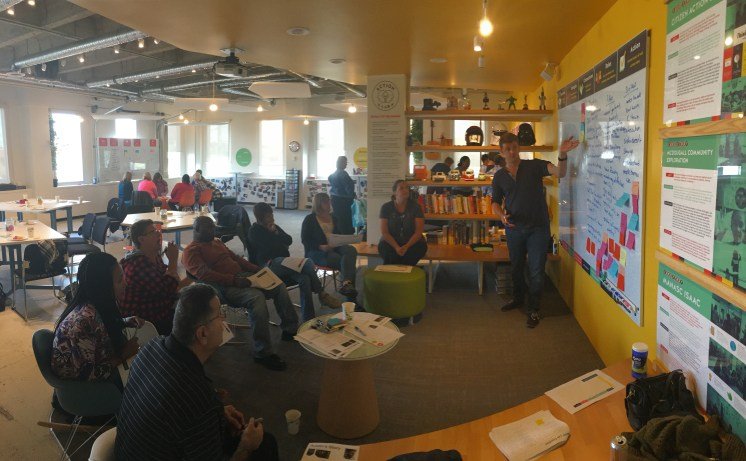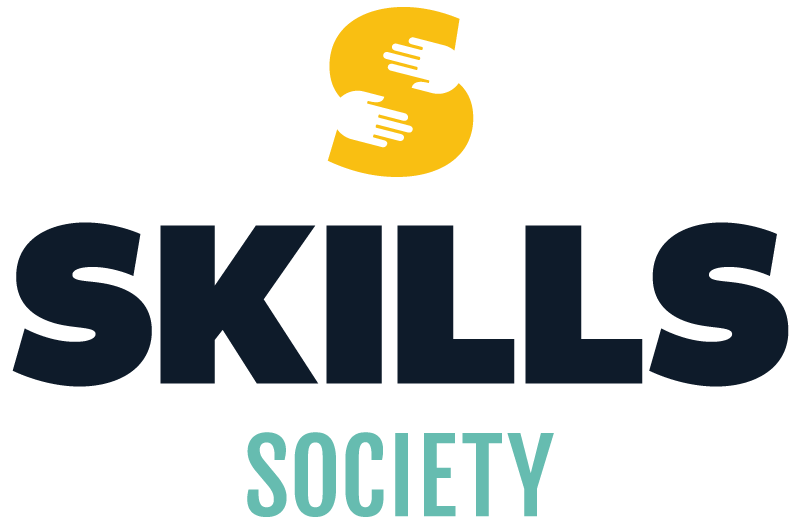
Humanized Equity, Diversity and Inclusion & Our Commitment to Anti-Discrimination
ᑕᑕᐊᐧᐤ tatawaw
Welcome! There is room for who you are, where you are from, and who you are becoming.
Our Skills Society vision is “a community where every individual is a valued citizen deserving respect, dignity and rights”
It’s important to remember that we exist as an organization in order to serve people with developmental disabilities in being able to live their best lives possible as full citizens in community. Central to our vision is the desire to build a community where everyone belongs as they are. Skills Society is dedicated to fostering an inclusive environment free from discrimination and which supports the dignity of all within our community. We believe an inclusive community is one:
where everyone has opportunities to share their gifts and talents;
where every individual feels they belong and is valued for their own identities, culture, view points, and traditions; and
that recognizes our shared humanity while also celebrating our unique individuality.
Skills Society has long established policies and practices that show we don’t just talk about, but act on valuing diversity, equity and social justice. We are committed to learning and acting on being inclusive to people of all genders, sex and sexual orientation, abilities, ages, social class, and race. As part of this value, we are continuously learning and improving to ensure our collective work keeps us all moving towards our vision and centers us in supporting the citizenship and deep belonging of people with developmental disabilities in community.
Ways Skills Society is learning/unlearning and acting on this commitment
Skills Society has been on a learning journey around what reconciliation means in action, how we can be better treaty relatives sharing this land together, and how to continue to foster inclusive and welcoming communities.
Celebrating diversity and remembering reconciliation and being good treaty relatives shouldn’t just be something that happens a couple times a year. We continue to learn together and work on these pieces in an ongoing way. Here are some actions Skills Society has or is currently taking:
Humanized Equity, Diversity, and Inclusion principles we steward and learn from
View the guiding ‘principles’ that inform our actions on our commitment to this work and anti-discrimination here.
Anti-discrimination and inclusion policies, procedures, and training
In 2010, we worked in collaboration with the Multicultural Health Brokers, to shape new anti-discrimination and inclusion policies, procedures, and training.
Equity, Diversity, and Inclusion Committee
Skills created an Equity, Diversity, and Inclusion committee made up of diverse perspectives within Skills Society who are stewarding learning throughout the organization around our ongoing commitment to equity, diversity, and inclusion.
Employee Education Award
Created an Education Award to support costs associated with tuition. As part of our commitment to equity, diversity and inclusion, and anti-racism, half of the awards are reserved for employees who identify as Black, Indigenous, or a Person of Color.
Supporting people we serve to embrace their cultural roots, learn, and connect
This commitment is reviewed annually with the people we support and their families as part of The Rights We Want! Statement of Our Rights and Responsibilities. If people we serve have Indigenous roots, we strive to help connect and support people to learn about Indigenous traditions and take pride in who they are, and where they are from.
Boost and support Indigenous and Black leaders
We strive to boost and support Indigenous and Black leaders within our organization and community, involving them in systems change initiatives such as our Future of Home: Inclusive Housing Solutions Lab and Shift Lab.
Organizational anti-discrimination commitment
The EDI committee created an anti-discrimination statement that our whole Skills community - people we serve, families, Guardians and employees - reflects on and recommits to yearly. You can view the statement here.
Learning about and celebrating Black History Month
Skills Society is committed to celebrating Black History Month and honoring the legacy of Black Canadians and their communities. This past year, Black Leaders in our own Skills Community came together to share stories and insights so that we can all learn and reflect on Black History month - read their stories and commitments we are making at Skills Society here.
Weaving meaningful Indigenous inclusion
Over 5 years Skills Society co-stewarded the Shift Lab which centered Indigenous leaders and knowledge in shaping anti-racism interventions for Edmonton.
We also worked with Naheyawin to further our learning journey around reconciliation and the creation of symbols and processes to foster healthy, everyday treaty relationships. Several artifacts and symbols have been added to the Skills Society Office and Action Lab spaces to help us remember the benefits and responsibilities we have as treaty relatives sharing lands with Indigenous peoples, and how those relationships can deepen the work we do.
Learn more about Treaty and being a good Treaty relative - here
Skills Society leadership learning and training
Skills Society leadership participated in the You Need This Box, which supports people in learning how to talk about racism, do better if one is a more privileged person, and create encouraging pathways for anti-racist allyship. The Board of Directors and leadership has also been learning about Indigenous peoples, treaty, and the Truth and Reconciliation Commission, and several leaders have taken the Indigenous Canada course through the University of Alberta.
Honoring National Truth and Reconciliation Day
Although our Government funder has not so far funded this day as a vacation day, Skills Society is committed to honoring National Truth and Reconciliation Day and sharing actions members of our community can take to act on reconciliation. In 2021, to commemorate National Truth and Reconciliation Day, an event was hosted by Naheyawin for Skills community members to explore and deepen their knowledge about the origin and purpose of National Truth and Reconciliation Day. A learning event will happen yearly now - learn more here.
Learn more about Treaty and being a good Treaty relative - here
